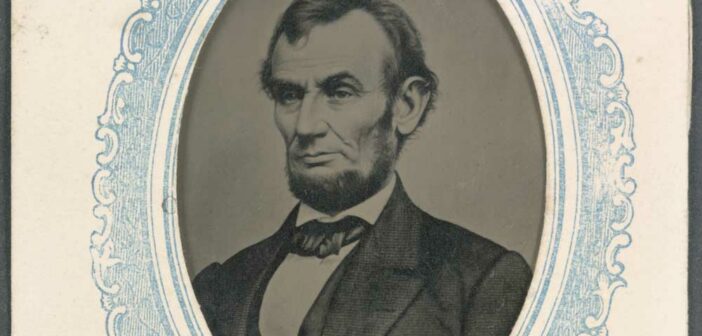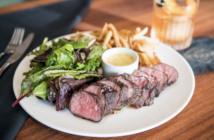By Jane Malone
Abraham Lincoln died at 7:22 a.m. on Saturday, April 15, 1865. The news of his assassination came in over the telegraph. In Gettysburg, whether one was a Republican or Democrat, the news of his death was shocking. The people of Gettysburg had hosted the president for almost 24 hours less than two years before.
The tolling of the borough’s church bells, sometime between 8 and 9 a.m., was the first sign most citizens of Gettysburg had of the tragedy that Saturday. According to both of Gettysburg’s main newspapers, all businesses closed immediately, and the American flag in the town center was hung at half-mast. The horrible specifics of Lincoln’s death spread by word of mouth, neighbor to neighbor to family member.
Lincoln was not universally popular in Gettysburg in 1865. Even after his visit to dedicate the National Cemetery in November 1863, there were critics of his policies in the community. In the 1864 election, Lincoln lost Adams County to his Democratic rival, George McClellan, by 524 of the 5,255 votes cast. On April 15, there were no critics and no division. In the words of Henry Stahle, editor of the Democratic Compiler newspaper, “The news of the death of President Lincoln, by assassination, was received here on Saturday morning, between 8 and 9 o’clock. That it shocked, appalled all—such as no piece of intelligence ever before did—is but using a weak expression as to its effect.” Robert Harper, the editor of the Republican Sentinel newspaper, wrote that friends and opponents alike “felt a deep and painful sorrow.”
Gettysburg’s burgess (mayor), Robert G. McCreary, called for a public meeting in the county courthouse that afternoon. Both newspapers reported that the participants met and recommended “as a mark of respect to the Office and the Man” that “the business places of the town remain closed for the rest of the day.” They requested each citizen wear “a crape on his left arm for the space of thirty days.” Finally, they appointed a committee to plan ways to mourn and honor the president. That committee convened immediately and requested that the courthouse, churches, and other public buildings in the town be draped in mourning. They made plans for the day of the president’s funeral and the yet-to-be announced “National Day of Humiliation and Prayer.”
Lincoln’s funeral began at noon on April 19, 1865 in Washington, D.C.
In Gettysburg that day, all businesses were closed at 11 a.m. The borough’s bells were tolled from noon to 1 p.m. Services were held in most of the local churches. The Compiler reported in its April 24 edition that “there were impressive services” at Christ Lutheran, the Presbyterian, and German Reformed churches.
June 1, 1865 was proclaimed a National Day of Prayer and Humiliation. In Gettysburg on June 1, solemn ceremonies were held again in memory of the slain president. Community leaders requested that all businesses close once more. At Christ Lutheran Church, where the Reverend T.D. Carnahan of the Presbyterian Church delivered the oration “The Life and Character of President Lincoln,” it was hard to find sitting or standing room. Later that afternoon, a community devotional meeting was held at Christ Church and was also well attended. Events like these were held throughout Adams County.
Saying goodbye to Lincoln was personal for the people of Gettysburg. They had living memories of the man they were mourning. They remembered him walking in their streets, engaging them in conversation, shaking their hands. Despite the shock, they marked Lincoln’s life and passing with the dignity and solemnity it deserved, never knowing how closely linked he and the town would remain in history.
Jane Malone serves on the Adams County Historical Society Board of Trustees.




